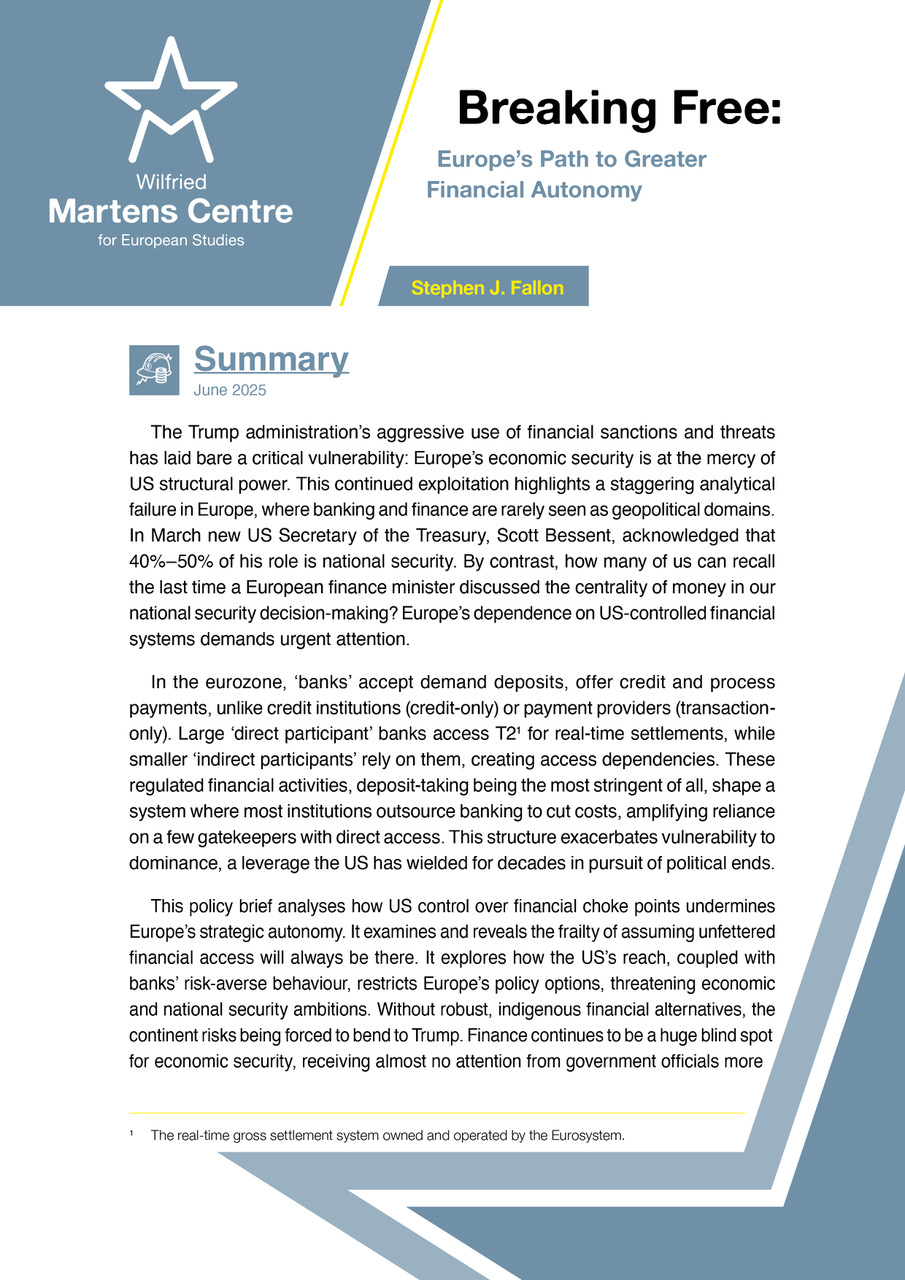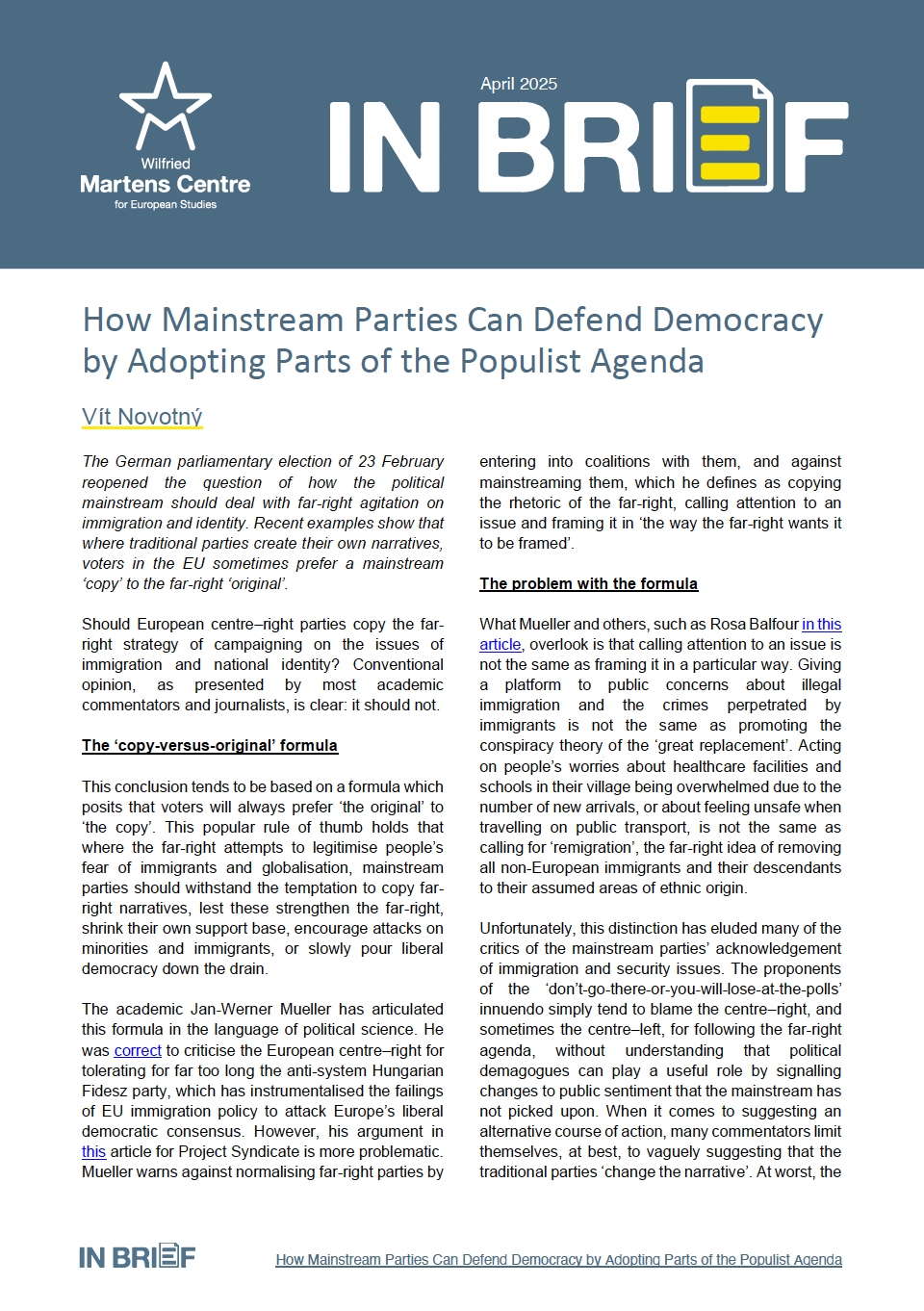Greece: Forward not backwards
22 January 2015
the pension reforms and tax system changes made. These policies would not be advisable in the country’s current economic environment. In fact, they are the same measures that got Greece into trouble in the first place, risking the deepening of the country’s debt burden and economic and social fragility. Pardoning the debt without changing the economic fundamentals will lead Greece into a next crisis soon.
The New Democracy’s programme proposes to continue with economic reforms to boost the country’s growth and competitiveness. Granted, many argue that the party could have done more to reduce the burden of the crisis on the private sector and to protect SMEs from going bust by improving the framework conditions for businesses to be able to continue operations in more efficient ways. However, their promise to support economically sound measures should be given an act of faith.
Greece will stay in the Europzone; sceptics will be proven wrong
Greece needs to elect leaders that have the credibility in front of Member States and towards private investors to govern the country responsibly. If Syriza wins, there is no certainty that the country stays in the Euro area, in spite of what it promises in the elections. Syriza will not be able to deliver only the attractive part of its programme. If they are left to apply economic utopia, people will burden the cost. Since their programme is not realistically able to bring the country back to growth, Greece will become even less credible for international lenders and unattractive to investors.
With the economy in its current state, it is unlikely that a Grexit would devalue the country’s debt; it might actually increase it. An exit of Greece from the euro would create even higher political instability, significant market turbulences and would actually increase borrowing costs for Greek businesses. Ultimately, the society as a whole would have to bear further costs and the sacrifices already made by the people are put at risk.
Therefore, in spite of what Eurosceptics believe, it is in Greece’s interest to stay in Eurozone. Given the current debt situation topping 175% of GDP, the re-scheduling of the debt repayment from 30 to 50 years would be a possible scenario under these circumstances. In addition, Greece would be on track to finalise the current bailout programme and get ready to enter international markets with more favourable interest rates in the longer term.
The population needs to be better informed about the possible consequences of voting for Syriza. Not taking the route of structural reforms, as Syriza proposes by reversing the already achieved results, poses a high risk to the country’s future welfare.
ENJOYING THIS CONTENT?






















